Confederate Truths: Documents of the Confederate & Neo-Confederate Tradition from 1787 to the Present.
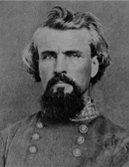

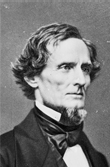
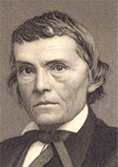

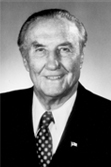
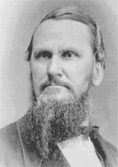
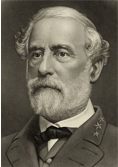
Every visitor to Birmingham during the Reunion will have an opportunity to see the wonderful picture drama, “The Birth of a Nation,” which will be shown there all during Reunion week, the “Confederate Veteran” tells its readers.
Every visitor to Birmingham during the Reunion will have an opportunity to see the wonderful picture drama, The Birth of a Nation, which will be shown there all during Reunion week, the Confederate Veteran tells its readers.
From the Confederate Veteran, Vol. 24 No. 5, May 1916, pp. 237. The Confederate Veteran was the official publication of the United Confederate Veterans, United Daughters of the Confederacy, Confederated Southern Memorial Associations, and the Sons of Confederate Veterans.
"THE BIRTH OF A NATION."
Every visitor to Birmingham during the Reunion will have an opportunity to see the wonderful picture drama, "The Birth of a Nation," which will be shown there all during Reunion week. None should fail to see it for its great historical value. In its many scenes of beauty and pathos we live again the days of the South's glory and humiliation and final resurrection through the strength of a manhood which would not submit to tyranny.
This photo play is founded on Thomas Dixon's story of "The Clansman," but it has been refined and strengthened in the adaptation directed by David Wark Griffith, whose treatment of the theme is much greater and grander than the original. It is interesting to know that Mr. Griffith is himself the son of a Confederate soldier, and perhaps on that account he was able to put into its every scene that quality which impresses with the vividness of truth. His father was Col. Jacob Wark Griffith, of Kentucky, lieutenant colonel of the 1st Kentucky Cavalry and known as a daring commander. There was more than one instance where Colonel Griffith led his regiment to victory when it seemed that the odds were too much. Col. E. Polk Johnson, of Louisville, Ky., who also served with that regiment—rather proud of it, too, he says—gives an incident in Colonel Griffith's career which demonstrates his ability to get out of a tight place. In a certain engagement the 1st Kentucky Cavalry found itself outnumbered and in danger of being captured. Realizing the desperate situation, Colonel Griffith, who was in command, here brought into use his marvelous voice, which could be heard at a great distance, and began to order imaginary troops to the front, to the right and left flanks, and wound up by ordering the 1st Kentucky to charge the enemy in front. Hearing these orders, the Federals thought they were about to be surrounded and began at once a retreat, with the 1st Kentucky at their heels. While not always victorious, Colonel Griffith managed to get his troops out of the worst situations without much loss. This regiment was a part of the escort of President Davis from Charlotte, N. C., to Washington, Ga., where it surrendered May 9, 1865, just one month after Appomattox, and every member of it was proud to have stayed to the end.
Like his father, David Griffith delights in overcoming difficulties and has the infinite capacity of taking pains. Through eight months he worked to perfect this production. When we realize that there are over five thousand distinct scenes, with eighteen thousand people and three thousand horses figuring therein, we have some idea of the magnitude of the undertaking. Mr. Griffith is known as a leader in the production of picture plays, and his masterpiece, "The Birth of a Nation," is a revelation as to what can be done in that field of art.
While the character roles in this stirring drama are all well sustained, there is one which stands preeminent, especially because of the splendid work in its portrayal. As Col. Ben Cameron, the daring soldier and leader of the Klan, Henry B. Walthall really lives the part of the high-bred Southerner and gallant Confederate and wins the appreciation of his audiences everywhere. The "Little Colonel," as he is universally known, is also the son of a Confederate, a soldier of Alabama, and was himself a volunteer in the war with Spain. He was born in Shelby County, Ala., and studied to be a lawyer, but found his true vocation on the stage. His work is always of a high order, but he is best known and appreciated for his part in "The Birth of a Nation."
Not the least enjoyable feature of this production is the music. From many sources it was drawn, and so appropriately is it adapted to every change of scene that subconsciously the audience is swayed by its theme, following in tender mood the strains of an old love song or thrilling under the high notes of patriotic airs. The climax of enthusiasm is reached under the stirring call to arms, and as the "Little Colonel" comes riding forward under the folds of the starry banner every heart echoes the strain which high and clear rings out:
"I'll live or die for Dixie!"